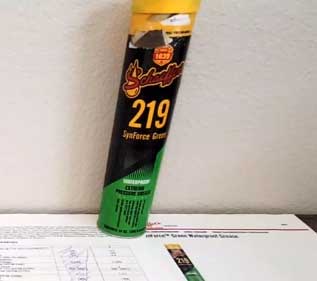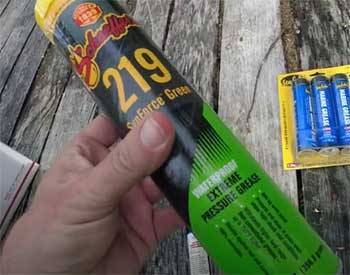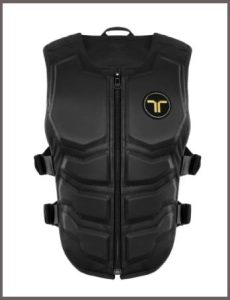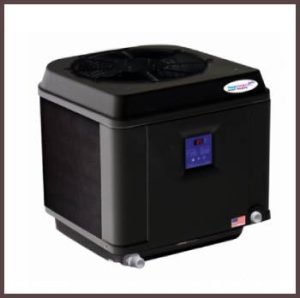Schaeffer Manufacturing has been a leader in the production of lubricants and greases for over 175 years. Their products have gained a reputation for high-quality, innovative solutions for a wide range of applications.
Among their wide array of offerings is the Schaeffer 219 grease, a synthetic blend, multi-purpose grease that has gained significant popularity in various industries.
In this review, we will take a deep dive into the features, pros, and cons of Schaeffer 219 grease to help you make an informed decision for your lubrication needs.
Features of Schaeffer 219 Grease
- Synthetic Blend Base

One of the key features of Schaeffer 219 grease is its synthetic blend base.
This base combines the best properties of synthetic and mineral oils, delivering a high-performance grease that offers excellent film strength, shear stability, and temperature resistance.
As a result, Schaeffer 219 grease can maintain its consistency and lubrication properties under extreme pressure and high-temperature conditions.
- Aluminum Complex Thickener
Schaeffer 219 grease utilizes an aluminum complex thickener, which offers several advantages over traditional lithium-based greases. This thickener provides excellent water resistance, allowing the grease to maintain its consistency and performance in wet environments.
Additionally, it offers superior oxidative stability, meaning the grease will last longer and require less frequent reapplication.
- Extreme Pressure and Anti-Wear Additives
To further enhance its performance, Schaeffer 219 grease contains a robust package of extreme pressure (EP) and anti-wear additives. These additives provide exceptional protection against wear, reducing friction and ensuring a longer lifespan for your equipment.
They also help to minimize the formation of deposits and sludge, keeping the grease clean and effective throughout its service life.
- Rust and Corrosion Inhibitors
Rust and corrosion can cause significant damage to equipment, leading to costly repairs and downtime. Schaeffer 219 grease contains rust and corrosion inhibitors that help protect metal surfaces from these harmful effects.
By forming a protective barrier on the metal surface, these inhibitors ensure your equipment stays in excellent condition, even in harsh environments.
Pros of Schaeffer 219 Grease
- Versatility
Schaeffer 219 grease’s unique formulation makes it suitable for a wide range of applications, including automotive, agriculture, construction, and industrial equipment.
Its versatility means you can use one grease for multiple purposes, simplifying inventory management and reducing the need for multiple lubricants.
- Extended Service Life

Due to its synthetic blend base, aluminum complex thickener, and robust additive package, Schaeffer 219 grease offers a longer service life compared to conventional greases.
Its enhanced oxidative stability means it can maintain its performance for extended periods, reducing the need for frequent reapplication and lowering maintenance costs.
- Excellent High-Temperature Performance
Schaeffer 219 grease’s synthetic blend base and aluminum complex thickener give it outstanding high-temperature performance.
This grease can maintain its consistency and provide effective lubrication at temperatures exceeding 500°F (260°C), making it an excellent choice for equipment operating in high-temperature environments.
- Superior Water Resistance
The aluminum complex thickener used in Schaeffer 219 grease provides excellent water resistance, making it ideal for use in wet or humid environments. This grease can maintain its consistency and performance even in the presence of water, ensuring your equipment remains protected from wear and corrosion.
- Reduced Equipment Wear
Schaeffer 219 grease’s extreme pressure and anti-wear additives offer exceptional protection against wear, extending the lifespan of your equipment.
By reducing friction and minimizing the formation of deposits, this grease ensures smooth operation and reduces the risk of premature equipment failure. Here is a good comparison video on it.
Exploring the Drawbacks of Schaeffer 219 Grease
- Cost Considerations
One of the primary concerns regarding Schaeffer 219 grease is its cost. As a high-performance lubricant, the grease features a synthetic blend base, an advanced aluminum complex thickener, and a robust package of additives that enhance its performance.
These elements contribute to its premium quality, which often comes at a higher price than conventional greases. For users with limited budgets or those who prioritize cost savings over performance benefits, Schaeffer 219 grease might not be the most cost-effective option.
- Compatibility Issues
While Schaeffer 219 grease is versatile and suitable for various applications, it may not be compatible with all types of equipment or other greases. Mixing incompatible greases can lead to a decrease in performance, causing potential equipment damage.
Incompatibility can result from different thickener types, base oils, or additives in the greases, which may not work well together. Users must verify the compatibility of Schaeffer 219 grease with their equipment and any existing greases before using it to avoid any adverse effects on performance or equipment life.
- Limited Availability
As a specialized, high-performance lubricant, Schaeffer 219 grease may not be as readily available as more common lubricants.
This limited availability could lead to difficulties in sourcing the grease, particularly for users in remote areas or those with limited access to specialized suppliers. In some cases, this lack of availability could result in increased lead times or the need to source alternative products to meet lubrication needs.
- Potential Environmental Impact
Although Schaeffer Manufacturing is known for its commitment to producing environmentally responsible products, the use of synthetic blend base oils in Schaeffer 219 grease may raise some environmental concerns.
Synthetic-based oils can take longer to biodegrade compared to vegetable-based or biodegradable oils. For users operating in environmentally sensitive areas or those looking to minimize their ecological footprint, alternative greases with more sustainable base oils might be a better choice.
- Not Suitable for All Applications
While Schaeffer 219 grease is designed for a wide range of applications, there are instances where it may not be the best fit.
For example, certain industries or applications may require specialized greases formulated for specific operating conditions, such as food-grade greases, electric motor greases, or lubricants designed for extreme-pressure applications.
In these cases, Schaeffer 219 grease may not offer the specialized performance characteristics required, and users may need to look for other alternatives tailored to their specific needs.
- Learning Curve for New Users
For users who are new to Schaeffer 219 grease or high-performance lubricants in general, there may be a learning curve associated with using the product.
This learning curve could include understanding the grease’s compatibility with existing lubricants, knowing how to apply it properly, and recognizing the appropriate maintenance schedule for reapplication.
The additional time and effort required to familiarize oneself with the product could be a potential drawback for some users.
Conclusion
Schaeffer 219 grease offers an impressive array of features, including a synthetic blend base, aluminum complex thickener, extreme pressure and anti-wear additives, and rust and corrosion inhibitors.
These features provide several advantages, such as versatility, extended service life, excellent high-temperature performance, superior water resistance, and reduced equipment wear.
However, there are also a few cons to consider, including cost, compatibility issues, and availability. Despite these drawbacks, Schaeffer 219 grease remains a high-quality, high-performance product that delivers excellent value for many applications.
By carefully evaluating the features, pros, and cons of this grease, you can determine if it’s the right choice for your lubrication needs.



